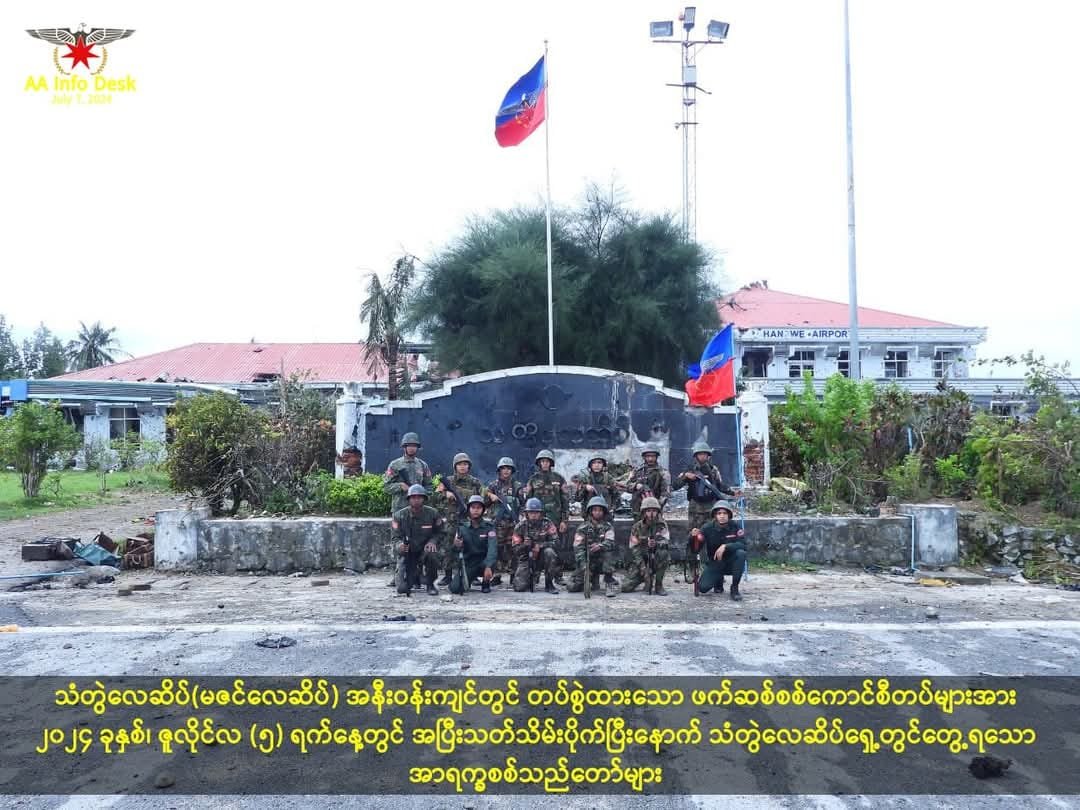After the outbreak of the Arakan decisive war, Rakhine people in Myanmar say they are losing their citizenship rights.
Rakhine people say that those holding the Myanmar government-recognized Rakhine State Representative Registration Card (11/—) face restrictions on their freedom of movement and their right to settle and reside freely within Myanmar’s borders.
Rakhine people say that due to the Arakan reclamation wars, the Myanmar junta is imposing restrictions, oppression, and punitive measures on displaced Rakhine civilians and the Rakhine ethnic community
A Rakhine war refugee told Border News Agency that “If Rakhine people holding the 11/ registration card want to travel from Yangon to other places, they are charged 50,000 kyats instead of the usual 30,000 kyats. This happens everywhere. Moreover, Rakhine people face discrimination,” based on their personal experience.
Article 355 of the 2008 Constitution of the Republic of the Union of Myanmar states that “Every citizen has the right, in accordance with the law, to settle and reside in any place within the Republic of the Union of Myanmar.”
However, Rakhine people claim that the military regime, which enforces the 2008 Constitution, is violating citizenship laws by arbitrarily restricting, oppressing, and taking punitive actions against displaced people fleeing conflict from Rakhine State.
Rakhine people say that following battles to capture towns such as Thandwe, Maungdaw, Taunggoke, Ann, and Gwa during the Arakan decisive war, the Myanmar junta has intensified its violations of citizenship rights.
Rakhine people say that due to these battles, the Myanmar junta has increasingly imposed restrictions and blockades on Rakhine individuals holding the 11/ ID card.
Due to these battles, a majority of Rakhine war refugees are now sheltering in regions such as Yangon, Mandalay, and Ayeyarwady.
War refugees from Rakhine say that the Myanmar junta is committing the most severe violations of citizenship laws against Rakhine civilians who have sought refuge in the Ayeyarwady region.
A Rakhine war refugee told Border News Agency, “Now, we are not allowed to work. Even when we try to stay calm, we are being forced to move. Instead of helping us amid the suffering caused by the war, they are making our situation worse. With such treatment of the ethnic people, it’s no surprise that the internal conflict is intensifying.”
Article 348 of Chapter 8 in the 2018 Constitution of the Republic of the Union of Myanmar states that “The state shall ensure that no citizen of the Union of Myanmar is discriminated against on the grounds of race, ethnicity, religion, social status, level of education, culture, gender, or wealth.”
In addition, Article 355 states that “Every citizen has the right, in accordance with the law, to settle and reside in any place within the Republic of the Union of Myanmar.”
Rakhine people say that the Myanmar junta has pressured highway bus owners, instructing them not to sell tickets or grant travel permits to those holding Rakhine State registration cards. Moreover, the Myanmar junta has been blocking Rakhine civilians and war refugees from passing through military checkpoints, and there have been reports of arrests.
Rakhine people, including those who have personally encountered the situation and express bus owners, say that while the Myanmar junta has not officially announced a travel restriction for those holding the 11/— registration card, they have instructed checkpoints to conduct strict inspections, effectively preventing travel.
Rakhine war refugees say that while the Myanmar junta has allowed air travel via Sittwe and Kyaukpru, it has denied Rakhine civilians and war refugees the right to return to their homes through the land routes.
In the Arakan decisive war, the Arakan Army (AA) has completely captured and controlled towns such as Maungdaw, Buthidaung, Rathedaung, Ponnakyun, Kyauktaw, Mrauk U, Minbra, Myaybon, Pauktaw, Rambree, Thandwe, and Taunggoke, as well as the Paletwa region.
In addition, Rakhine people say that the Arakan Army (AA) is intensifying military operations to completely capture Ann and Gwa towns, while also reporting heightened military tensions in Kyaukpru and Sittwe.






